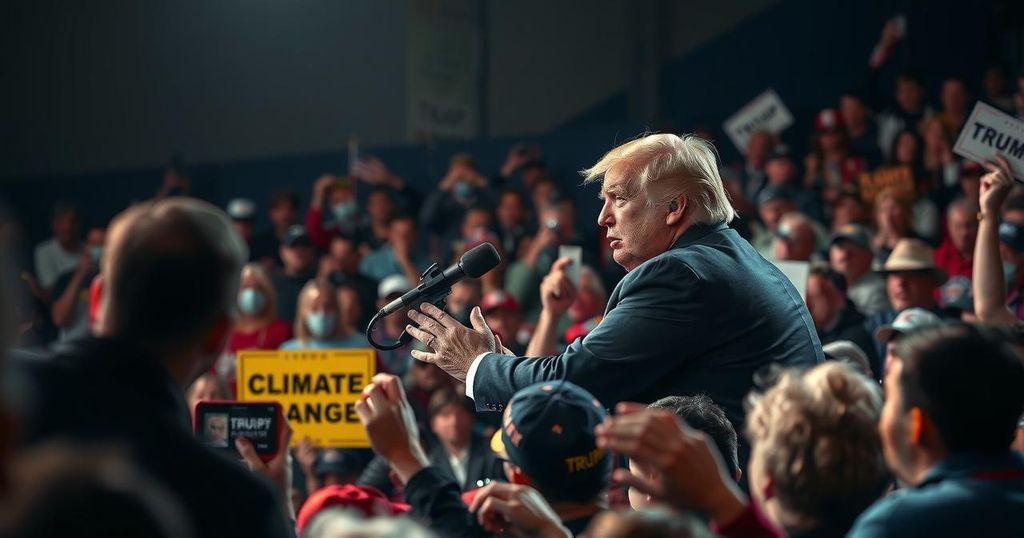Climate Action at Risk: Trump’s Presidency Threatens Global Efforts at COP29

The COP29 U.N. Climate Change Conference in Baku highlights deteriorating global climate action as political factors, particularly Donald Trump’s presidency, threaten international cooperation. Scientists express increasing pessimism about climate research effectiveness due to lack of governmental commitment. Urgent funding for developing nations remains a central concern amid escalating climate crises.
The current state of global climate action appears dire as the 2024 U.N. Climate Change Conference (COP29) convenes in Baku, Azerbaijan. Notably, recent scientific sentiments reflect a growing pessimism among researchers regarding humanity’s commitment to combating climate change, particularly in light of the election of Donald Trump as U.S. president. Trump’s history of withdrawing from international climate agreements and advocating for fossil fuel expansion signals a potential regression in global cooperation on climate issues, leaving developing nations to face compounded challenges in securing necessary funding for climate adaptation and mitigation efforts. The urgent need for substantial financial support for vulnerable countries remains a pivotal topic at COP29, raising concerns about the willingness of developed nations to take responsibility amidst visiting natural disasters and climate extremes.
Efforts to combat climate change have been exacerbated by political instability and reluctance among key nations to adhere to international agreements. As greenhouse gas emissions continue to rise, scientists have increasingly expressed frustration, with a significant number experiencing emotional distress due to the lack of actionable support from global leaders. The Intergovernmental Panel on Climate Change (IPCC) regularly reports the realities of global warming; however, political actions often diverge from scientific recommendations, impacting the effectiveness of climate policies worldwide.
In summary, the challenges posed by climate change are magnified by political decisions and actions from global leaders. As COP29 progresses, the international community must grapple with the implications of leadership that dismisses scientific consensus, while developing nations urgently seek funding to address the impacts of climate change. The intersection of politics and science will play a crucial role in determining the future of global climate action.
Original Source: www.asahi.com






